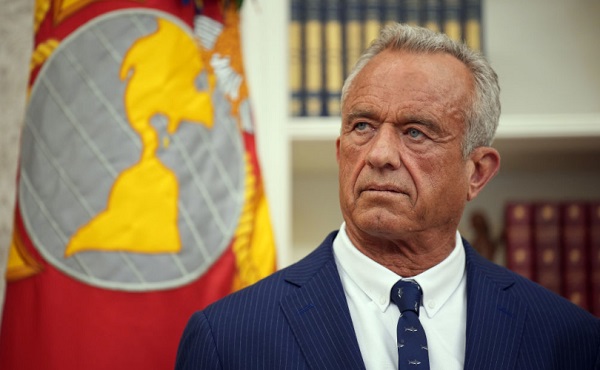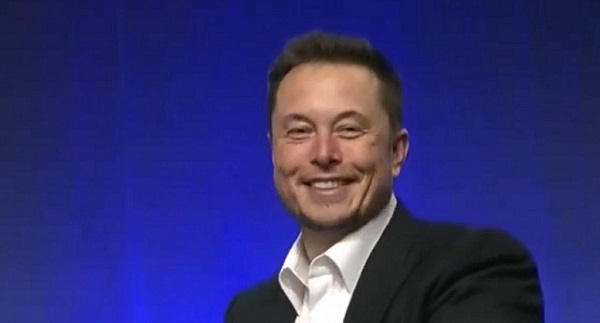Alberta
Ottawa’s next phase of ‘plastics’ war will increase cost of fruits and vegetables

From the Fraser Institute
For decades, nutrition advocates have exhorted Canadians to eat more fresh fruits and vegetables. Canada’s Food Guide suggests that half of our meals should be fruits and veggies. Why then does the Trudeau government plan to increase fruit and vegetable waste—and increase their costs?
It’s all about the government’s war on plastics, specifically its agenda to eliminate plastic waste by 2030. Having already banned single-use plastic items such as drinking straws, stir sticks and plastic cutlery, the government plans to target plastic food packaging. And that’s going to hit consumers in the pocket.
According to a new study from the Canadian Produce Marketing Association (CPMA), under the new reduced-plastic packaging regime, food loss and waste will potentially increase 495,000 tonnes above current levels, incurring financial losses valued at $3.4 billion. These losses, at least in significant part, will ultimately be passed onto consumers. In a report by CTV, reporter Kevin Gallagher suggests that increased costs to consumers might reach 30 per cent.
The study authors suggest this estimate should be considered conservative, because it does not include the potential for single-use plastic bans causing a “complete disruption to some sectors of the fresh produce industry, and the anticipated 17.5 per cent increase in operating costs voiced by respondents that industry would incur.” And 17.5 per cent is the median—cost increases ranged from 11 per cent to 25 per cent. Assuming these increased costs are passed onto consumers, Canadians will see the price of fruits and veggies take yet another jump.
And for what reason? The Trudeau government has foolishly committed Canada to a “Zero Plastic Waste by 2030” crusade. But as I showed in a 2022 study published by the Fraser Institute, Canada does not have a significant plastic waste problem. Less than 1 per cent of plastics used in Canada end up as waste in the environment, and 99 per cent is safely buried in landfills, recycled or incinerated. Canada does not contribute a measurable part of the world’s plastic pollution.
And the government’s own analysis suggests that pursuing this war on plastics will ultimately lead to greater waste of alternative materials, which is already raising concerns among the environmentally-minded. In a separate CTV report Melanie Nagy quotes Nicole Rycroft, founder of Canopy, a forest conservation NGO, who said we should “shift away from using plastics as much as we do, but trading in plastic pollution for deforestation and forest degradation is not the answer” and we must “make sure we do not create another environmental disaster.” Rycroft added that “more than three billion trees—many of which are old-growth and endangered—are logged every year to make paper-based products like bags, straws and food containers.”
The Trudeau government’s zero plastic waste crusade was unsound policy from inception, and its own analysis showed the plan’s costs would outstrip its benefits and that it would create more waste, not less. And that most of that increased waste would come from increased consumption of wood and paper products.
Now, the government plans to ratchet up this harmful program, raising already painfully expensive produce in Canada to more painful levels. Ottawa must halt its “Zero Plastic Waste” agenda and take the entire concept back to the drawing board. It’s simply bad policy—bad for Canadian families, bad for our food sector, and as the Canopy tree people observe, bad for the environment.
Author:
Alberta
Tell the Province what you think about 120 km/h speed limit on divided highways

Alberta’s government is engaging with Albertans on increasing speed limits on rural highways.
Starting Nov. 7, Albertans can share their views on modernizing speed limits on divided highways through an online survey running until Dec. 12. The survey will ask how Albertans view raising the speed limit by 10 km/h on various highways from 110 km/h to 120 km/h.
“Alberta’s government is investigating how to safely increase speed limits on divided highways, and if Albertans support increasing speed limits. We are investing more than $1.5 billion this year alone to improve highway safety and upgrade infrastructure across the province. We want Albertans to be able to drive the speed limit that the highways are designed for. Modern vehicles combined with public awareness mean we can explore higher speed limits.”
The survey will provide Albertans with the opportunity to provide input on which highways they would prioritize having a speed limit increase, their views on restricting commercial trucks from using the far-left lane on highways with three or more lanes and any other feedback that would improve driving experiences on provincial highways.
Following a review of the survey results, Alberta’s government plans to conduct a mini-trial of a 120 km/h speed limit to assess the impacts of higher speed limits on divided highways. The trial will include strong monitoring to assess driving behaviour.
Alberta’s government reminds motorists to slow down and drive to the conditions. Speed limits are set for ideal conditions. When roads are wet, icy or when there is reduced visibility, motorists should slow down.
Quick facts
- Alberta’s provincial highway network includes more than 64,000 lane kilometres of highways, about 11,700 lane kilometres of which are divided.
- The posted speed limits of Alberta’s divided highways range from 100 to 110 km/h, although the posted speed limits on segments passing through cities, towns and First Nation lands can be as low as 50 km/h due to factors such as signalized intersections, pedestrians and local access.
Related information
- The survey is available online.
Alberta
Alberta Announces Members of Class Size and Complexity Committee

A new Class Size and Complexity Cabinet Committee has been struck to address classroom challenges.
Taking action on class size and complexity
Classrooms in Alberta continue to grow and are becoming increasingly complex, and immediate action is needed to address these issues in the public education system. To meet these issues head on, the Class Size and Complexity Cabinet Committee has been created. The cabinet committee will help guide government policy and deploy resources to deal with class sizes and classroom complexity.
“We are committed to providing world-class education, and we’re building schools and funding education at a rate unprecedented in this province. This committee will help us address the concerns of teachers, parents and students around class sizes and complexity.”
Throughout November, Alberta’s government will continue work with school boards to collect data on class sizes and classroom composition. The cabinet committee will use this data to direct resources to the classrooms that need it the most. Starting in January, this data will be made available and released annually.
The Class Size and Complexity Cabinet Committee will be co-chaired by the Premier of Alberta and the Minister of Education and Childcare. It will also include non-voting members representing school boards, administrators and a teacher representative of the ATA. The committee will also hear from school boards, academic experts, teachers, educational assistants, complex needs specialists and parents to inform its decisions and guide this vital work.
“We heard teacher concerns, and we are providing solutions. The Class Size and Complexity Cabinet Committee will help us take immediate action and ensure teachers and students are given the support they need to succeed.”
In June 2025, Alberta’s government established the Aggression and Complexity in Schools Action Team to provide advice on addressing classroom complexity. The report has been received and will be released soon. Over the coming months, the cabinet committee will start rolling out solutions informed by the action team’s recommendations. In addition, the committee will guide the creation of a new inclusive education policy framework.
“The work of this committee will support teachers in responding to the growing complexity in our classrooms. We will ensure that the voices of the contributors to the initial work guide
solutions that truly improve the educational experience for students and the educators who serve them.”
“I appreciate the government’s recognition of the impact of classroom complexity and their commitment to working collaboratively for improvement. Supporting teachers ultimately improves classroom conditions and student outcomes.”
Using data collected, this cabinet committee will also guide Alberta’s government in executing its commitment to hire 3,000 new teachers and 1,500 new educational assistants over the next three years. They will also assist in identifying and prioritizing where new schools and modulars should be built, advancing the government’s commitment to invest $8.6 billion to build 130 new schools, and provide 109 modular classrooms in the growing communities that need them urgently.
Quick facts
- Members of the Class Size and Complexity Cabinet Committee include:
- Danielle Smith, Premier of Alberta
- Demetrios Nicolaides, Minister of Education and Childcare
- Jason Nixon, Minister of Assisted Living and Social Services
- Rick Wilson, Minister of Mental Health and Addiction
- Searle Turton, Minister of Child and Family Services
- Lynnette Anderson, chief superintendent, Edmonton Catholic Schools
- Nicole Buchanan, chair, Red Deer Public Schools
- Marilyn Dennis, former president of Alberta School Boards Association
- Mike McMann, superintendent, Fort Vermilion Schools and President, College of Alberta School Superintendents
- Joanne Pitman, chief superintendent, Calgary Board of Education
- Dr. Elissa Corsi, Alberta Teachers’ Association
- Only Cabinet members are voting members. Additional guests will be invited to attend and share their expertise at the discretion of the chairs.
- School boards will be required to submit data on Alberta classrooms by Nov. 24.
-

 Business2 days ago
Business2 days agoCarney budget continues misguided ‘Build Canada Homes’ approach
-

 Business2 days ago
Business2 days agoCarney budget doubles down on Trudeau-era policies
-

 Business22 hours ago
Business22 hours agoBill Gates Gets Mugged By Reality
-

 COVID-192 days ago
COVID-192 days agoCrown still working to put Lich and Barber in jail
-

 Health16 hours ago
Health16 hours agoRFK Jr. urges global health authorities to remove mercury from all vaccines
-

 International1 day ago
International1 day agoKazakhstan joins Abraham Accords, Trump says more nations lining up for peace
-

 Automotive1 day ago
Automotive1 day agoElon Musk Poised To Become World’s First Trillionaire After Shareholder Vote
-

 Energy23 hours ago
Energy23 hours agoCanada Cannot Become an Energy Superpower With its Regulatory Impediments











